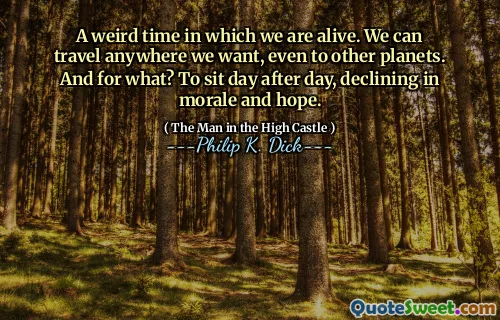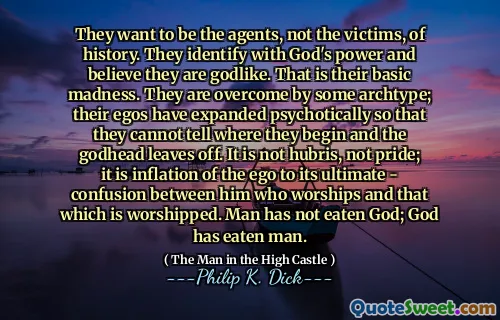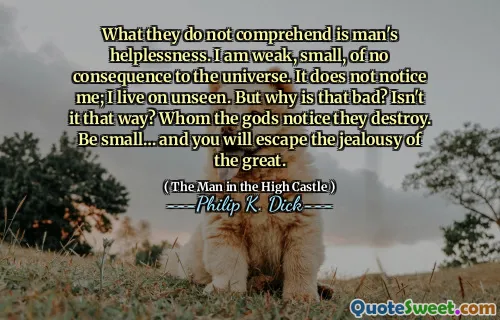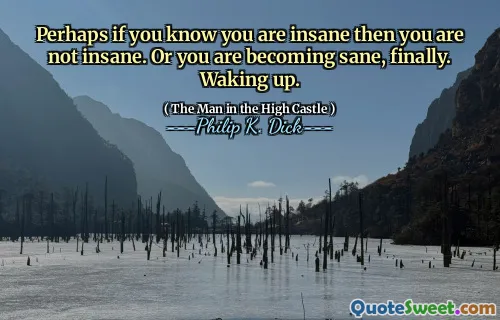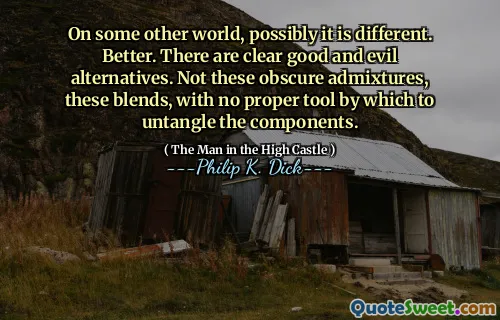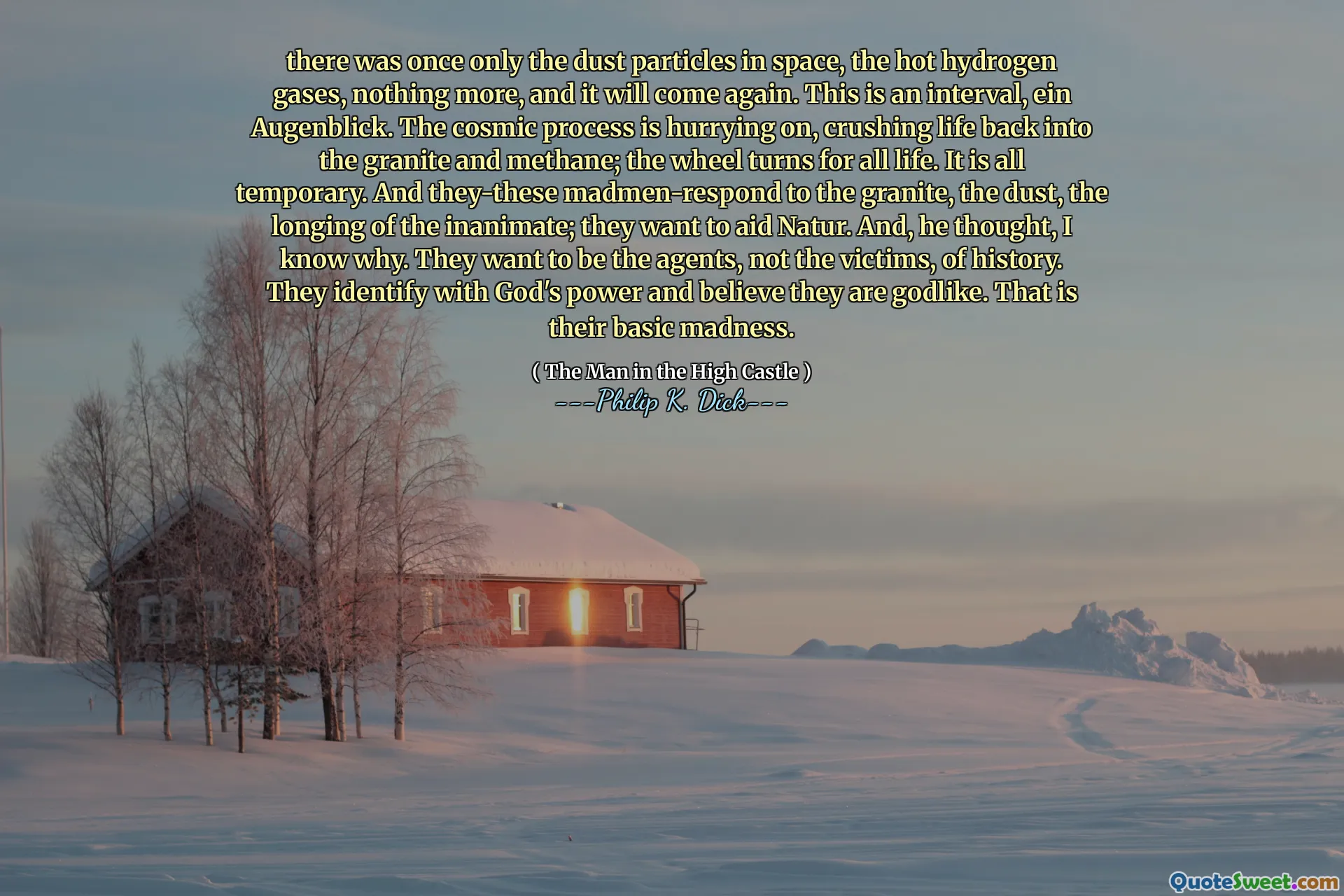
there was once only the dust particles in space, the hot hydrogen gases, nothing more, and it will come again. This is an interval, ein Augenblick. The cosmic process is hurrying on, crushing life back into the granite and methane; the wheel turns for all life. It is all temporary. And they-these madmen-respond to the granite, the dust, the longing of the inanimate; they want to aid Natur. And, he thought, I know why. They want to be the agents, not the victims, of history. They identify with God's power and believe they are godlike. That is their basic madness.
The passage reflects on the transient nature of existence, suggesting that life emerged from the primordial elements of the universe, like dust and gas. It portrays an inevitable return to this state, emphasizing that all life is temporary and subject to cosmic cycles. This transition illustrates the impermanence of life as it reshapes and eventually returns to its original forms.
The madmen mentioned in the text are depicted as individuals who strive to control or influence the natural order. Their desire to engage with nature and history comes from a yearning for power and significance. They wish to become active participants in the unfolding of events, aligning themselves with a godlike authority. This ambition is characterized as a form of madness, driven by a deep-seated need to transcend the role of mere victims in the grand narrative of existence.
